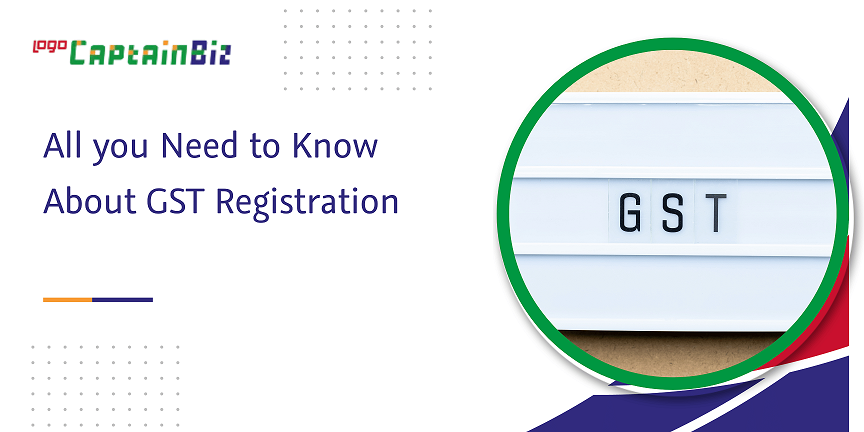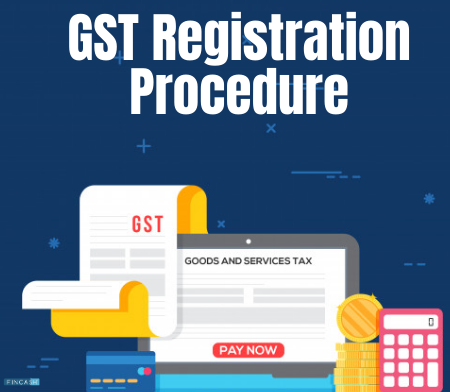From Beginning To End: The Ultimate Roadmap to GST Enrollment for Services Seeking Financial Stability
Browsing the intricacies of Item and Provider Tax Obligation (GST) enrollment is a crucial step for businesses striving for financial stability. Breaking down the roadmap into workable steps can improve the registration trip for organizations looking to improve their economic standing.
Comprehending GST Fundamentals
Diving right into the basic concepts of Goods and Provider Tax (GST) is vital for getting a detailed understanding of its effects on services and the economic situation. GST is a value-added tax obligation levied on most items and solutions for domestic intake. It has replaced multiple indirect taxes that existed in the pre-GST age, improving the tax framework and enhancing convenience of doing service in India. Under the GST system, both services and items are tired at a details rate, which is determined based upon their classification. If their annual turn over surpasses the threshold limit established by the government, organizations are needed to register for GST. Input Tax Obligation Credit (ITC) is a substantial function of GST, allowing organizations to assert credit for tax obligations paid on inputs, lowering the overall tax obligation concern. Recognizing the basics of GST is crucial for services to follow tax regulations, handle their finances effectively, and add to the country's financial development by taking part in a transparent tax system.
Eligibility Requirements for Registration
To register for GST, businesses must meet particular eligibility criteria developed by the federal government. The key qualification requirement is that any kind of business associated with the supply of products or services with an annual aggregate turnover over the threshold limit set by the authorities have to register for GST. Since the current guidelines, the threshold restriction for GST registration is a yearly aggregate turnover of 40 lakhs for services running within a state, with the exception of unique category states where the limitation is 20 lakhs. Furthermore, particular companies are needed to register for GST regardless of their turn over, such as interstate suppliers, laid-back taxed persons, and businesses liable to pay tax obligation under the reverse fee device. It is vital for businesses to extensively assess their turnover and deal kinds to identify their GST registration obligations properly. Failure to sign up for GST when eligible can lead to charges and legal consequences, making it crucial for services to stick to the defined eligibility standards.
Documents Required for Enrollment
Having actually satisfied the eligibility requirements for GST enrollment, companies need to now ensure they have the requisite records in location to proceed with the enrollment procedure successfully. The papers needed for GST registration commonly consist of evidence of service constitution, such as partnership action, registration certificate, or consolidation certificate for different sorts of services. Additionally, organizations need to supply files developing the major place of business, such as a rental arrangement or electricity bill. PAN card of business, in addition to the identity and address proof of promoters/partners/directors, are vital for confirmation objectives. Bank account declarations, together with canceled cheques or a duplicate of the bank wikipedia reference passbook, are needed to verify the economic details supplied throughout enrollment. Furthermore, companies should have digital trademarks all set for the accredited signature. Making certain all these files are organized and conveniently available will certainly speed up the GST registration procedure, making it possible for organizations to follow tax guidelines seamlessly.
Step-by-Step Enrollment Process
Beginning the GST registration process entails a series of structured actions to ensure a smooth and compliant registration for organizations. The initial step is to visit the GST website and complete the registration type with exact information of the company entity. Following this, the candidate receives a Short-lived Reference Number (TRN) which is utilized to return to the application process if it's not completed in one go.
Next, all needed documents according to the list provided by the GST portal requirement to be posted. These papers typically include proof of business address, enrollment and identification evidence of marketers, monetary declarations, and organization entity's frying pan card.

Post-Registration Conformity Standards

Verdict
Finally, companies looking for economic security has to understand the essentials of GST, meet eligibility standards, gather necessary records, comply with the detailed enrollment process, and adhere to post-registration guidelines - Best GST registration services in Singapore. By adhering to these actions, companies can ensure compliance with tax laws and preserve financial stability in the lengthy run
Furthermore, certain organizations are blog needed to sign up for GST irrespective of their turn over, such as interstate vendors, casual taxed individuals, and services liable to pay tax obligation under the reverse fee mechanism.Having actually fulfilled the eligibility criteria for GST registration, businesses must currently ensure they have the requisite records in location to continue with the registration procedure efficiently. The records needed for GST enrollment normally consist of proof of service constitution, such as partnership action, enrollment certificate, or unification certificate for various kinds of services. In addition, companies require to offer records establishing the major area of company, such as a rental contract or electricity costs.Commencing the GST registration procedure involves a collection of organized actions to guarantee a compliant and seamless enrollment for organizations.